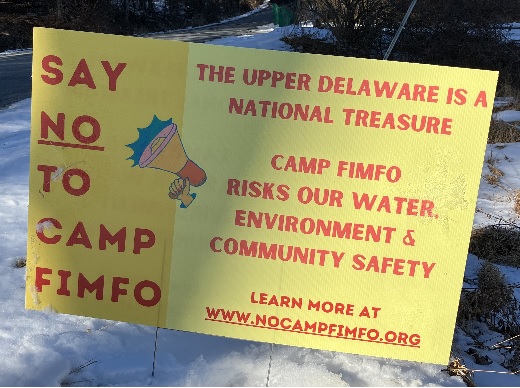Md. House Votes to Require Energy Companies to Fund Safety Studies on Natural Gas Fracking
April 3, 2012RISKS AND RICHES IN THE FRACKING ERA
April 3, 2012By Mary Esch, Associated Press, March 31, 2012
ALBANY, N.Y. — While New York regulators have spent four years mulling the environmental impacts of shale gas development, the potential human health impacts have been given short shrift, according to health advocates.
Whether gas drilling affects health has led to heated debates. Environmentalists and people living near drilling sites say the risks include contaminated water wells and air pollution. The industry says those fears are exaggerated and that the process been used safely on tens of thousands of wells.
The Medical Society of the State of New York has called for a moratorium on natural gas extraction using hydraulic fracturing until scientific information on health impacts is available.
In a letter last fall to Gov. Andrew Cuomo, more than 250 doctors and other health care professionals cited studies in Alaska and Colorado as examples of what New York should do as regulators consider allowing hydraulic fracturing to begin.
“The purpose of a health impact assessment is to take what’s known and make reasoned professional judgments about what kind of health impacts could occur, and provide recommendations to mitigate those impacts before they happen,” said Roxana Witter of the Colorado School of Public Health, who led what’s called the Battlement Mesa study.
The Colorado study, the nation’s first health impact assessment related to natural gas development, was completed last year.
Gina Solomon, a physician with the Natural Resources Defense Council, said health concerns include air pollution; potential contamination of ground or surface water with methane or chemicals used in fracturing fluids; fires or explosions; heavy truck traffic; and altered social conditions.
In Pennsylvania, medical professionals have complained that they have no studies to guide them in handling medical issues; with none to reference, they don’t know what to look for, much less how to treat it.
Philanthropies including the Heinz Endowment are funding several new shale-related health projects.
Some residents in the Pennsylvania town of Dimock have complained that fracking polluted their wells and a toxic response team from the federal Centers for Disease Control and Prevention has investigated. The Environmental Protection Agency said this month that well water tests failed to show health-threatening levels of contamination.
The National Research Council of the National Academies of Science recommends greater use of health impact assessments for major policies and projects. The goal is not to determine if a project is approved, but to ensure that adverse health effects are minimized.
Alaska, under pressure from community activists, has begun requiring a formal health impact assessment for permitting all large developments, according to Ed Fogels, Alaska’s deputy commissioner of natural resources.
While thousands of shale gas wells have brought an economic boom over the last four years to communities in Pennsylvania, drilling in New York’s part of the rich Marcellus Shale has been under a de facto moratorium since the Department of Environmental Conservation’s review began in 2008. That review is expected to be completed in several months.
DEC has proposed rules for permitting gas-drilling companies to pump water, chemicals and sand into deep, horizontally drilled wells at high pressure to release natural gas from shale, a process known as hydraulic fracturing or “fracking.”
DEC spokeswoman Emily DeSantis said the environmental study and proposed regulations thoroughly review potential adverse health impacts and put requirements in place to prevent them. The state Health Department has declined to do an assessment, saying it wouldn’t provide significant new information.
A budget amendment proposed in the state Assembly would have commissioned a health impact assessment by a state university, but it was dropped during budget negotiations this week. A bill in the Senate would ban fracking until a health study is completed.
Brad Gill, executive director of the Independent Oil and Gas Association of New York, said the call was “part of a calculated campaign designed to frighten New Yorkers.”
“There are no demonstrated cases of negative health impacts associated with natural gas development in the United States,” Gill said. “In fact, a $1 million study, completed last August in Fort Worth, Texas, concluded natural gas development in the Barnett Shale did not lead to adverse health effects.”
That study looked only at air quality. Although it found no significant health threats beyond setback distances, it recommended additional emission-control equipment and enhanced inspection and monitoring at natural gas sites.



